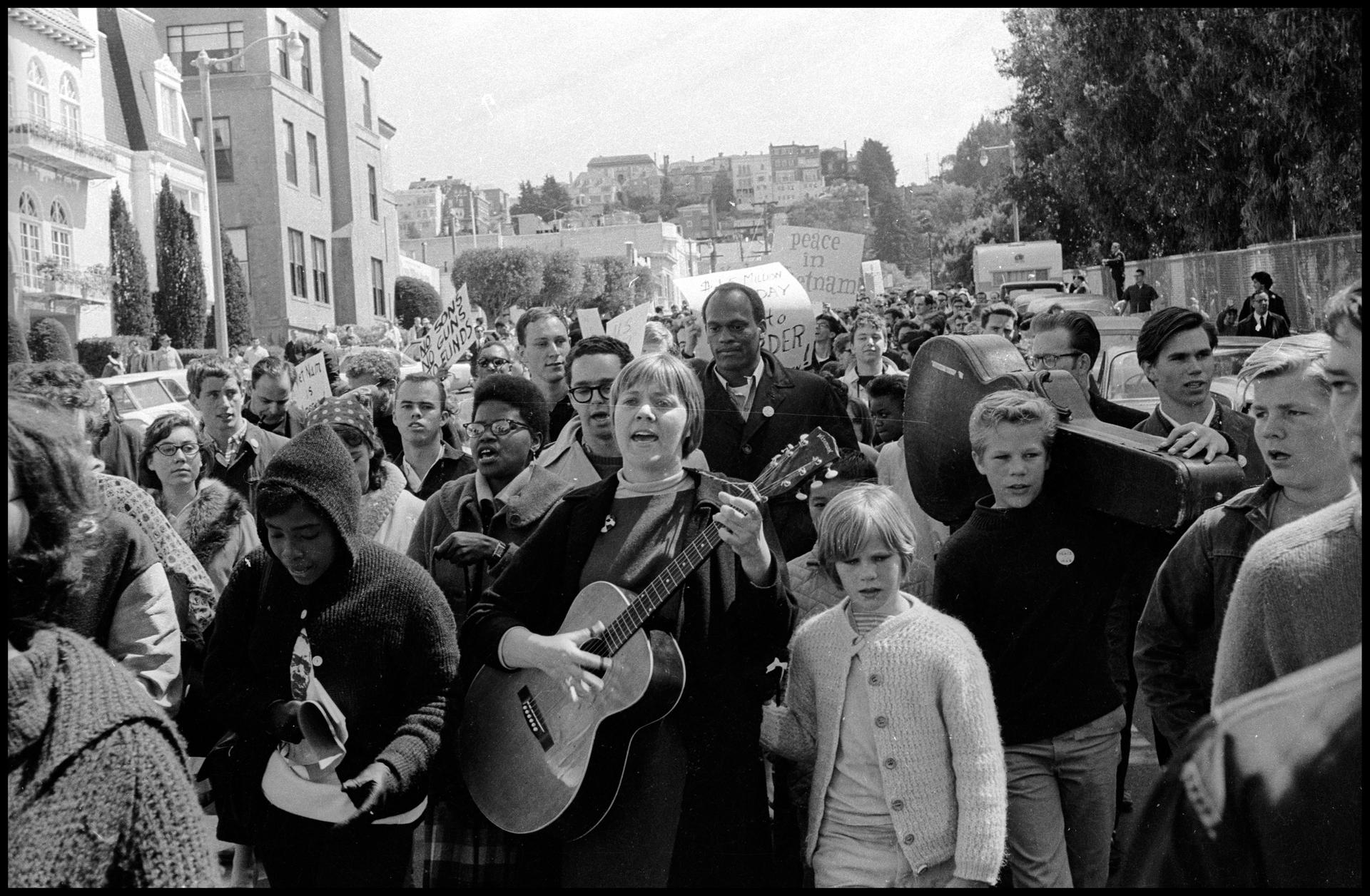Barbara Dane singing at a Vietnam War protest in 1964.
"Can you recall any good fascist songs?" Barbara Dane, the founder of Paredon Records, asks.
Unlike fascist music, Dane recalls protest and struggle songs as having a rallying effect. Songs like "Deutschlandlied," which was chosen as Germany's national anthem in 1922 (today only the third stanza is used in the national anthem), can be pointed out as nationally successful. But fascist songs just don't seem to bring people together the way that protest music from folk culture does.
Still, it can be difficult to come across the folk culture that Dane experienced in the 20th century. Some feel that protest music today isn't what it used to be. For Dane, the genre hasn't really gone anywhere — it's just a matter of a good search.
In 1969, Barbara Dane founded Paredon Records with her late husband, Irwin Silber. The label produced 50 titles capturing the various 20th century struggles for racial, economic and social justice.
From music to speeches, Paredon Records spanned the globe bringing voices from people in Cuba, Puerto Rico, Ireland, Palestine, Italy, Thailand and many other places. Dane introduced songs of struggle, which sparked more than lingering emotions. She said that Paredon Records produces the “music of the people” and, contrary to what some may think, it's “not just some poetic device.”
Both Silbur and Dane were committed to social change and were able to find voices that were out of the reach of large audiences or silenced by their own governments. They were radicals for the time and were committed to using music to connect larger audiences in the United States to different groups' struggles.
“My thought was, This will get these terrific songs from all these different languages, all these different movements, and in a form that people in the US could understand,” she said. She went on to say, “the main impulse was that people were striving for various kinds of liberation and making songs about it.”
Dane was fascinated by cultures outside of her own, and she worked to educate others about them, as well.
Each record was accompanied by a booklet of information about the relevant political movement and other struggles being described in the music and speeches. Dane called them “a little graduate study,” to provide context for American audiences that may have been apathetic or isolated from global news. Dane’s earlier involvement in anti-war demonstrations, a childhood wrapped in Detroit segregation and a desire to give voice and rhythm to stories about people inspired her to begin the label — and even to end it.
When it started to become "a real business," she explains, it was time to transition back to production and activism.
Barbara Dane is celebrating her 90th birthday with a concert at UCLA’s Royce Hall on Oct. 21. To hear more about Paredon Records and Dane, listen to the full interview above.
Future Folk shares the stories of communities through the music that they make. It is a co-production of PRI’s The World and the Smithsonian Folklife Festival.
The story you just read is accessible and free to all because thousands of listeners and readers contribute to our nonprofit newsroom. We go deep to bring you the human-centered international reporting that you know you can trust. To do this work and to do it well, we rely on the support of our listeners. If you appreciated our coverage this year, if there was a story that made you pause or a song that moved you, would you consider making a gift to sustain our work through 2024 and beyond?
